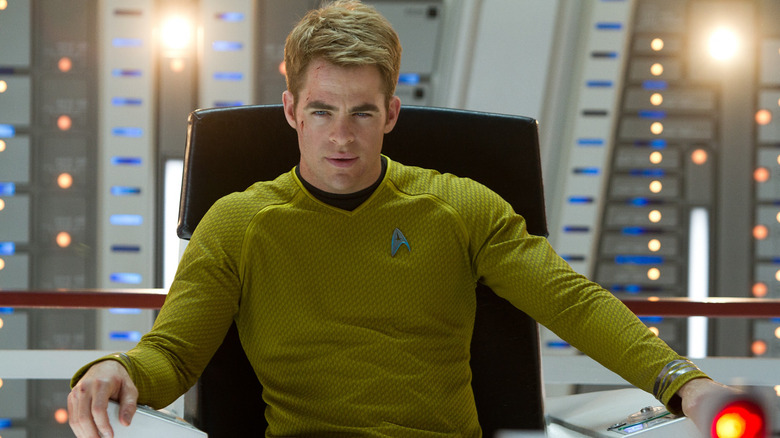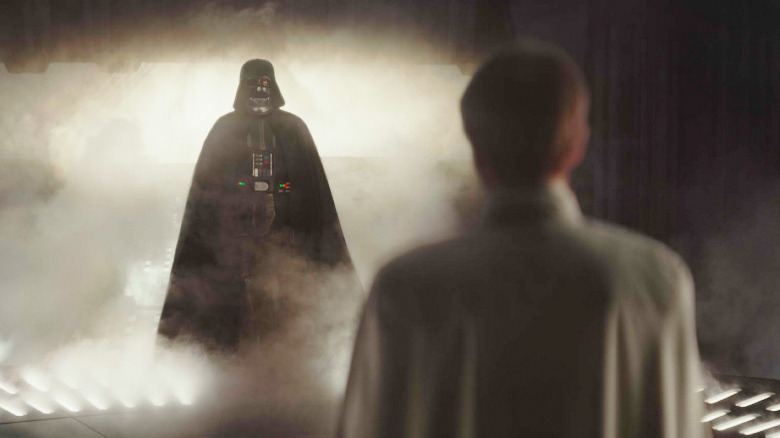How The Past Influences Michael Giacchino's Music Scores, From Rogue One To Star Trek [Exclusive]
For as prolific as he's become over the last 20 years, composer Michael Giacchino has done a bang-up job of not repeating himself too much. Oh sure, some of his film and TV scores stand out more than others, but for the most part, he tends to embrace a fresh sound with each individual project.
Consider, for example, the playful romanticism of his "Ratatouille" score, his whimsical yet tear-jerking melodies for "Up," or the way his ethereal music for "Inside Out" appropriately runs the gamut in terms of its emotions. Then there's his soundtrack for "Tomorrowland," a piece of music that captures the sensation of going on a whirlwind adventure better than the actual film. Similarly, his exhilarating "Star Trek" movie scores stand in contrast to his broody, operatic leitmotifs for "The Batman" or the way his "Planet of the Apes" music blends epic orchestrations with those that are far quieter and more introspective in nature.
When it comes to his soundtracks for long-running film series, Giacchino seems particularly mindful of the movies that came before. His score for "Werewolf by Night," a Marvel special presentation he also directed, sees Giacchino once again paying his respects to film history, this time by homaging the ominous, Gothic vibes of Universal's old-school black-and-white monster movies. In an interview with /Film's Jack Giroux, Giacchino explained how he goes about invoking cinema's past in his work. As he sees it, the key is to capture the spirit of older music without repeating it.
"I think if you just repeat the past, it's a bad thing," he added, citing his "Star Trek" scores as "something that felt it belonged here without totally ignoring what came before."
Honor what came before, but make something new
Giacchino's "Rogue One: A Star Wars Story" score very much embodies this philosophy. Although it has its fair share of triumphant or intense full orchestra themes, there are also unique melodies (like the use of strings in the mournful "Jyn Erso & Hope" suite) that set it apart from John Williams' legendary work in a galaxy far, far away. At the same time, there are suites that directly recall what Williams did before him, like when Giacchino employs a chorus to haunting effect while Darth Vader slaughters troops aboard a Rebel command ship in the film's climax, evoking Williams' powerful "Duel of the Fates."
"I like things that sort of honor the past while creating something new," Giacchino explained, commenting on his "Rogue One" score:
"Of course, I love John Williams and everything he did is genius and no one's ever going to be better than him, but I also thought there was room for something new even in that. It was to use the moments that John created in the right way, at the right time, in the right place as opposed to just wallpaper the whole thing with it."
Doing this, Giacchino reasoned, allows his scores to enhance the sense of discovery that comes with any project, be it an original work or not:
"That's part of the fun of being told a story: I don't need to feel comfortable, and if it makes me uncomfortable, I'm okay with that. Let me discover what's new. So delivering something new has always been important to me, and I know it's important to a lot of the filmmakers I work with as well. We all just grew up in this business with that attitude."
"Werewolf by Night" is now streaming on Disney+.

